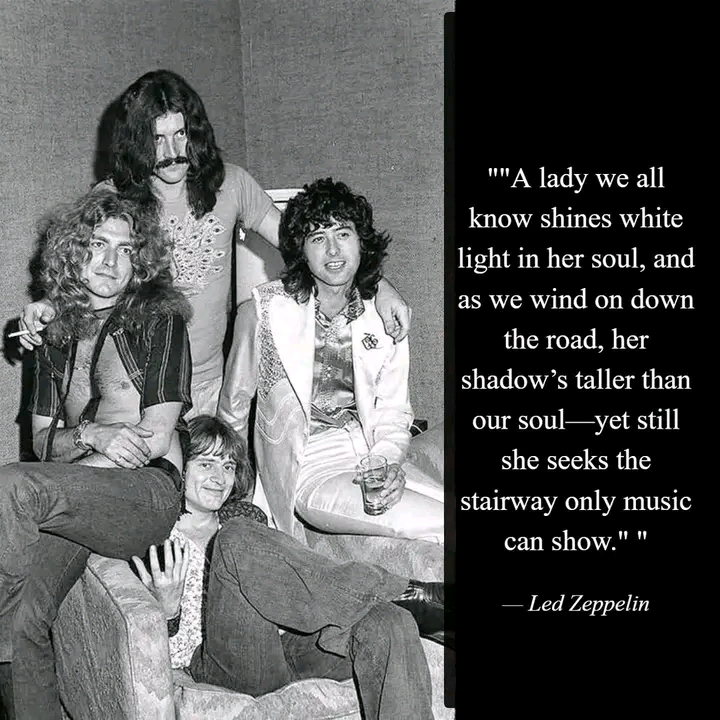**“Stairway to Heaven”: A Timeless Rock Masterpiece**
Released in 1971 on Led Zeppelin’s fourth studio album, *“Stairway to Heaven”* is widely regarded as one of the greatest and most influential rock compositions ever recorded. Written by guitarist **Jimmy Page** and vocalist **Robert Plant**, the song is a journey in itself—beginning as a soft, acoustic ballad and gradually transforming into a powerful hard rock anthem. This progression, both musically and emotionally, showcases the band’s remarkable versatility and ambition.
Lyrically, the song is steeped in spiritual and mystical symbolism. It tells the story of a woman who believes she can purchase her path to salvation, only to discover that meaning and fulfillment are not for sale. With poetic grace, Plant explores themes of desire, illusion, self-reflection, and the eternal search for truth. The ambiguous nature of the lyrics has inspired endless interpretations, each listener finding their own meaning within its verses.
Though never released as a commercial single, *“Stairway to Heaven”* became a staple of rock radio and a centerpiece of Led Zeppelin’s live shows. **Jimmy Page’s** soaring guitar solo remains one of the most iconic in music history, often cited as a pinnacle of expressive rock guitar work. The song’s complex arrangement and emotional crescendo have captivated audiences for over five decades.
Despite occasional controversies, including debates over hidden messages and allegations of plagiarism, the song’s legacy has endured unshaken. It represents more than just a musical achievement—it embodies the bold creativity of 1970s rock, when artists pushed boundaries in pursuit of something deeper and more transcendent.
*“Stairway to Heaven”* is not merely a classic—it’s a cultural monument. It continues to resonate across generations, reminding us of music’s power to elevate, challenge, and endure. It’s a stairway not just to heaven—but to timeless
artistry.










